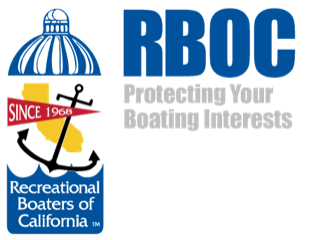RBOC joined dozens of stakeholders testifying in today’s meeting of the California Air Resources Board as it considered a revised proposal establishing lower emission requirements for commercial harbor crafts.
CARB Meeting March 24, 2022
RBOC’s efforts are in furtherance of its position as set forth in comments submitted in November of 2021 [click here], working together with our national advocacy partner BoatU.S., sportfishing groups and boating industry organizations.
Today, the CARB board adopted Resolution 22-6 [click here] with improvements to the updated regulations to allow for compliance flexibilities and extensions as well as alternative emission control strategies. The adopted resolution also creates a stakeholder process and technical working group, establishes midterm reviews, and identifies additional considerations going forward.
As described by CARB, the updates to the regulations will impose “more stringent in-use and new vessel requirements and expand regulatory requirements to vessel categories that did not previously need to upgrade engines, such as certain types of barges, research vessels, work boats, and commercial passenger fishing vessels. The in-use regulatory amendments would require that the majority of regulated in-use and new vessels meet a performance standard equivalent to the cleanest available engine standards: Tier 3 (or 4 if certified for the horsepower range) plus a diesel particulate filter (DPF).”
“The Proposed Amendments would also include engines below 50 horsepower in the CHC Regulation, which are currently excluded from the CHC Regulation’s in-use performance standards. However, the Proposed Amendments still provide a low-use compliance exception for vessel engines with infrequent operation. The Proposed Amendments include requirements for the adoption of ZEAT where feasible for all operations in California. CARB staff has identified two areas that are technologically feasible and cost effective for zero emission- operations: new and in-use short run ferries, and new excursion vessels. The Proposed Amendments include additional pathways for adopting ZEAT for any CHC operation where a given operation is feasible but not required. The Proposed Amendments’ implementation timeline consists of compliance deadlines between 2023 and 2032. If eligible and approved, compliance dates can be extended to as late as 2034.’

